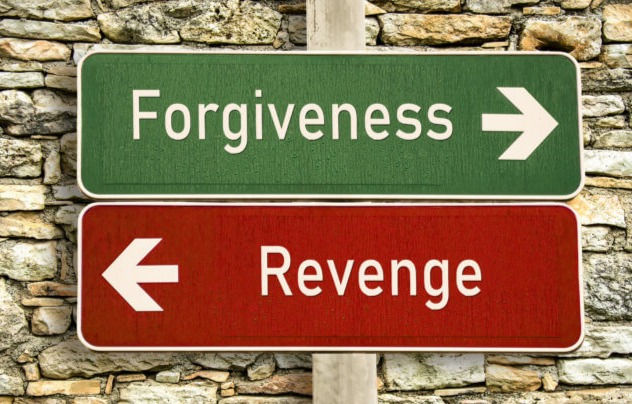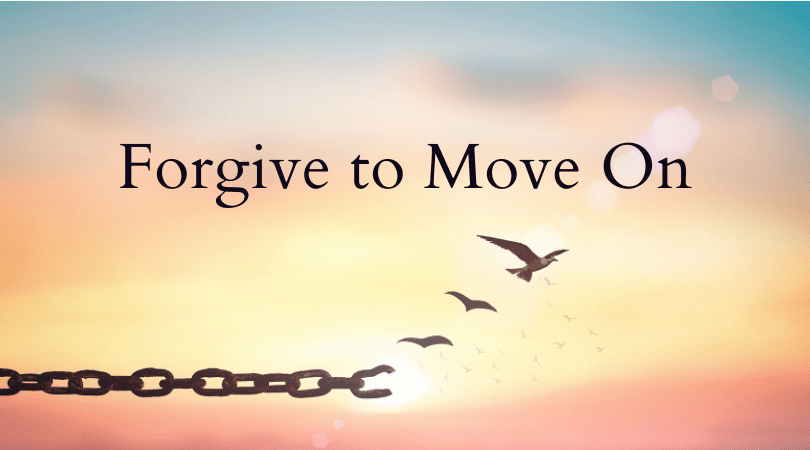FORGIVENESS: REASON, LIMIT, & PROCESS
- Charles
- 16 sept. 2023
- 3 min de lecture
Reflections for the Twenty-fourth Sunday in Ordinary Time: Sirach 27:30—28:7, Romans 14:7-9, & Matthew 18:21-35

1. Why should I forgive? The essence of this Sunday liturgy’s response is “forgive because you are forgiven”. This reasoning implies three further revelations:
a. That we, as humans, are marked by the common trait of fragility. An interesting detail in today’s parable: both the debtors are servants and their prayers are almost identical. The former pleads the king, “Be patient with me, and I will pay you back in full”. The latter requests, “Be patient with me, and I will pay you back”. The chief problem with the unforgiving servant is his failure to realise the fact that he shares in his debtor’s weakness too. The first reading rightly asks, “Could anyone refuse mercy to another like himself?”. While Gandhi said, “The weak can never forgive”, the liturgy insists we must forgive for we are all weak.
b. That what we owe God is exponentially higher than what we owe each other. The servant owed 10,000 talents. One talent is equal to 6000 denarii, which would take an ordinary labourer 6000 days (16 years) to earn. The second servant owed 100 talents (100 days’ salary). This staggering disproportion drives home the message: if we have been forgiven so much, how much more should we be willing to be patient with each other’s weaknesses?
c. Since we are forgiven, we are enabled to forgive. When the former servant’s debt was forgiven, he was also delivered from his possible slavery (Lev 25:39.47, Neh 5:5) and thus in a position to forgive the other servant. While enjoying the freedom enabled by the King’s pardon, he is not too eager to liberate others. It is this failure that imprisons him again. God’s pardon heals our remorse, anger, and vengeance and makes us agents of reconciliation.
2. How many times should I forgive? Peter asks if he should forgive his brother 7 times. In asking so, he was well aware that he was exceeding the exigences of the Talmud. The law prescribes that one must forgive his or her brother thrice (Talmud Babyl. Joma 86,2, Amos 1:3; Job 33:29.30). Peter’s offer to forgive seven times is therefore already generous. Jesus challenges Peter to move from generosity to Christian charity by forgiving 77 times (other traditions say seven times seventy times). A keen biblical reader can see an allusion made here to Genesis 4:23-24, where Lamech claims, “If Cain is avenged seven times, then Lamech seventy-seven times.” Jesus reverses the movement from unbridled vengeance to unlimited forgiveness.

To obsess over the meaning of 77 is to miss the point of the parable, which is that love does not count, calculate, weigh, or measure. Forgiving without limit is an invitation to imitate the boundless love of God in our relationships. Thérèse of Child Jesus understood this limitless forgiveness when she said, “If I had committed every possible crime, I'd still have the same confidence; I feel that all these multitudes of offences would be like a drop of water thrown into a blazing inferno" (Last Conversations, July 11, 1897). Because we are called to reflect God’s limitless forgiveness, we can no longer count, tally or keep score. Forgiveness is love in action beyond set measures and standards.
3. But, what about justice? Where does one draw the line between unlimited forgiveness and blind submissiveness to injustice? Does not forgiving 77 times amount to giving tyranny a free pass over my rights and dignity? Is a wife supposed to forgive her cheating (or abusing) husband 77 times? Should we wait for 77 murders before imprisoning a serial killer? What about justice for the victims? What about my right to defend myself? Let’s be clear: forgiveness is not opposed to Justice. Neither is it irrelevant. Forgiving is the first step of the long path towards justice and reconciliation. Forgiveness liberates us from the degressive “victim” and “victor” mode of relationship to “fellow brothers and sisters” working on reconciliation.

As New Testament Scholar Linda Oyer says, forgiving is not an end in itself; the goal is restoring the relationship. Rebuilding a relationship with someone who has betrayed or hurt you can be a long, demanding, and painful process! But it begins with forgiveness. The experience of forgiveness initiates the other person into a process of liberation. Forgiving is also liberating oneself, untying oneself and the other. Let's face it, the invitation to unlimited forgiveness is a scandal to our reason and sense of justice and that is precisely why it is founded on God’s forgiveness, without which our forgiveness is impossible. Let’s forgive for we are forgiven. Let’s forgive beyond measure. Let’s forgive to walk the process of reconciliation.




Commentaires